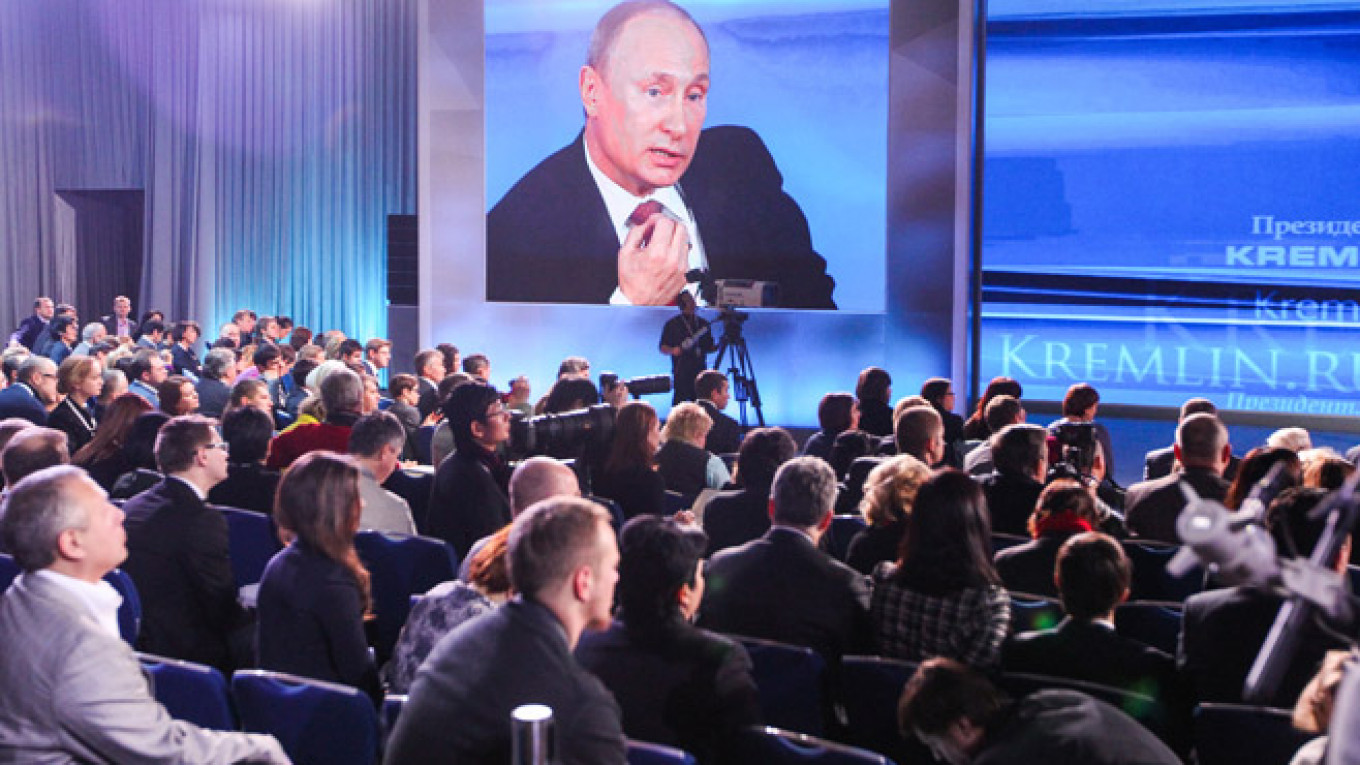I earned my degree in journalism back in the 1970s from universities in both Moscow and Warsaw. Instructors at both institutions used the same archetypal example to explain the nature of propaganda, saying that we can describe a glass as half-empty or half-full.
Both statements are true, but they serve opposing propaganda purposes. The first assertion carries a negative connotation, whereas the second is full of optimism. The idea was that we could effectively influence readers, viewers or listeners in this way without resorting to the use of lies.
That was essentially how all Soviet propaganda worked: The authorities interpreted objective facts to suit their own purposes.
Now everything has changed. The glass is empty, the world sees that it is empty, but the Russian media proclaims: "The glass is completely full." And no sooner does the glass become full again than we hear: "It is empty. There is nothing there." I worked for Soviet newspapers during the terms of four Soviet leaders, from Leonid Brezhnev to Mikhail Gorbachev, and this is the first time the authorities have lied so brazenly and shamelessly. They have truly reached a new low.
Here is an indisputable fact: A passenger plane was shot down over territory controlled by pro-Russian separatists. Everyone understands that it was a mistake and not an intentional act, and the separatists could have admitted as much.
In a similar situation, when Soviet forces mistakenly shot down a South Korean airliner in 1983, Soviet media did not deny the incident but focused all its propaganda efforts on explaining the context of how it happened, claiming, for example, that the South Korean crew had "provocatively changed course."
This time the Kremlin-controlled media has repeatedly claimed that: the airplane was not shot down at all, but fell out of the sky by itself; a bomb exploded aboard the airplane; the airplane was hit by a Ukrainian missile fired from the ground; a Ukrainian air force fighter pursued and then attacked the plane; the U.S. shot down the plane in order to damage Russia's reputation; no living people were aboard the plane as it flew on autopilot from Amsterdam, where it had been pre-loaded with "rotting corpses."
Difficult as it is to believe, that last, completely ridiculous version of events, which was put forward by Igor Girkin, the commander of the pro-Russian terrorists responsible for the tragedy, not only aired on all state-controlled media outlets, but was the subject of serious discussion.
All of those versions of events were deliberate lies, and all of the reporters and commentators who authored and discussed them knew they were telling lies. And yet they still did it. At the same time, their behavior did not suggest that they were unaware of the existence of the Internet, where citizens could find ample evidence refuting their claims: videos, photos, recordings of intercepted telephone conversations and eyewitness testimony. For Russia's state media journalists, it was not enough to simply twist the facts to their own purposes: They felt compelled to tell bold-faced lies.
An experienced, older journalist and I recently debated whether this practice is deliberate or the result of simple incompetence. After all, the authorities could just spin the facts to suit their propaganda goals. Why bother building a parallel universe? "In our time," my companion said with a sigh, "we maintained higher standards," attributing the problem to unprofessionalism.
But I think it is done deliberately. When propaganda is based on nuances of interpretation, the chance always remains that someone with a fresh perspective or a critical mindset can cast doubt on those claims. However, when the authorities base their propaganda entirely on lies, they achieve their desired result faster and leave no room for doubt. Thus, lies provide a quicker and more effective means to the end.
Andrei Malgin is a journalist and literary critic.
A Message from The Moscow Times:
Dear readers,
We are facing unprecedented challenges. Russia's Prosecutor General's Office has designated The Moscow Times as an "undesirable" organization, criminalizing our work and putting our staff at risk of prosecution. This follows our earlier unjust labeling as a "foreign agent."
These actions are direct attempts to silence independent journalism in Russia. The authorities claim our work "discredits the decisions of the Russian leadership." We see things differently: we strive to provide accurate, unbiased reporting on Russia.
We, the journalists of The Moscow Times, refuse to be silenced. But to continue our work, we need your help.
Your support, no matter how small, makes a world of difference. If you can, please support us monthly starting from just $2. It's quick to set up, and every contribution makes a significant impact.
By supporting The Moscow Times, you're defending open, independent journalism in the face of repression. Thank you for standing with us.
Remind me later.


